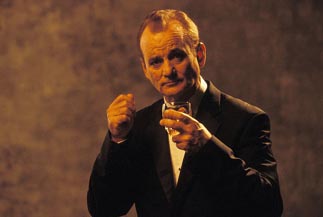A Very Specific Kind of Person
Excerpt from Fareed Zakaria's most recent article in Newsweek
Wall Street will also need to change. Paul Volcker has long argued that the recent spate of financial innovation was nothing of the kind: it simply shuffled around existing resources while contributing few real benefits to the economy. Such activity will now be reduced significantly. Boykin Curry, managing director of Eagle Capital, says, "For 20 years, the DNA of nearly every financial institution had morphed dangerously. Each time someone at the table pressed for more leverage and more risk, the next few years proved them 'right.' These people were emboldened, they were promoted and they gained control of ever more capital. Meanwhile, anyone in power who hesitated, who argued for caution, was proved 'wrong.' The cautious types were increasingly intimidated, passed over for promotion. They lost their hold on capital. This happened every day in almost every financial institution over and over, until we ended up with a very specific kind of person running things. This year, the capital that remains is finally being reallocated to more careful, thoughtful executives and investors—the Warren Buffetts … of the world."
Wall Street will also need to change. Paul Volcker has long argued that the recent spate of financial innovation was nothing of the kind: it simply shuffled around existing resources while contributing few real benefits to the economy. Such activity will now be reduced significantly. Boykin Curry, managing director of Eagle Capital, says, "For 20 years, the DNA of nearly every financial institution had morphed dangerously. Each time someone at the table pressed for more leverage and more risk, the next few years proved them 'right.' These people were emboldened, they were promoted and they gained control of ever more capital. Meanwhile, anyone in power who hesitated, who argued for caution, was proved 'wrong.' The cautious types were increasingly intimidated, passed over for promotion. They lost their hold on capital. This happened every day in almost every financial institution over and over, until we ended up with a very specific kind of person running things. This year, the capital that remains is finally being reallocated to more careful, thoughtful executives and investors—the Warren Buffetts … of the world."




